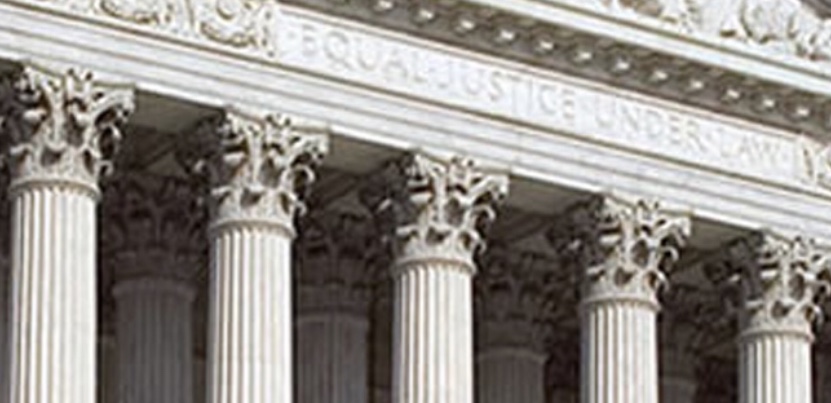
A U.S. Supreme Court decision Monday to overturn a 40-year precedent has some questioning whether Roe v. Wademay be next.
The case, Franchise Tax Board of California v. Gilbert P. Hyatt, involves states’ rights. In a 5-4 decision Monday, the high court overturned a four-decade-old case about whether a state can “unwillingly be sued in the courts of another,” the AP reports.
Within the justices’ decisions, however, were hints that Roe v. Wade could be overturned sometime in the future as well.
Justice Stephen Breyer, one of the four liberal judges who opposed the ruling Monday, cited the abortion case Planned Parenthood v. Casey in his dissent, Law and Crime News reports.
He said the majority decision on Monday has him concerned about stare decisis, a legal term that means sticking by past precedent. The term frequently was used in and around the nomination hearings for Justice Brett Kavanaugh while questioning his position on abortion and Roe v. Wade.
Breyer wrote:
It is one thing to overrule a case when it ‘def[ies] practical workability,’ when ‘related principles of law have so far developed as to have left the old rule no more than a remnant of abandoned doctrine,’ or when ‘facts have so changed, or come to be seen so differently, as to have robbed the old rule of significant application or justification.’ Casey, 505 U. S., at 854–855. It is far more dangerous to overrule a decision only because five Members of a later Court come to agree with earlier dissenters on a difficult legal question. The majority has surrendered to the temptation to overrule [Nevada v.] Hall even though it is a well-reasoned decision that has caused no serious practical problems in the four decades since we decided it. Today’s decision can only cause one to wonder which cases the Court will overrule next.
Reports noted Breyer’s mention of Casey — meaning Planned Parenthood v. Casey, a 1992 U.S. Supreme Court ruling that upheld Roe v. Wade while allowing a few modest restrictions on abortion.
According to Law and Crime News:
Casey, in reaffirming Roe, held that “matters,” such as abortion, “involving the most intimate and personal choices a person may make in a lifetime, choices central to personal dignity and autonomy, are central to the liberty protected by the Fourteenth Amendment.” …
Supreme Court Justice Clarence Thomas seemed to respond directly to Breyer’s complaint about stare decicis by saying “stare decisis is ‘not an inexorable command.’”
“And we have held that it is ‘at its weakest when we interpret the Constitution because our interpretation can be altered only by constitutional amendment,’” he wrote.
Ilyse Hogue, president of the radical pro-abortion group NARAL, quickly noticed the reference, too.
“What happened today in #SCOTUS is an assault on precedent that goes well beyond this one case. See #RoeVWade Breyer wrote ‘Today’s decision can only cause one to wonder which cases the court will overrule next,’” she wrote on Twitter.
Jeffrey Toobin, a writer for the New Yorker, took Breyer’s comments to mean “Roe v. Wade is doomed.”
Continue reading here.
[Editor’s Note: This article was written by Michaiah Bilger and originally published at lifeNews. Title changed by P&P.]










